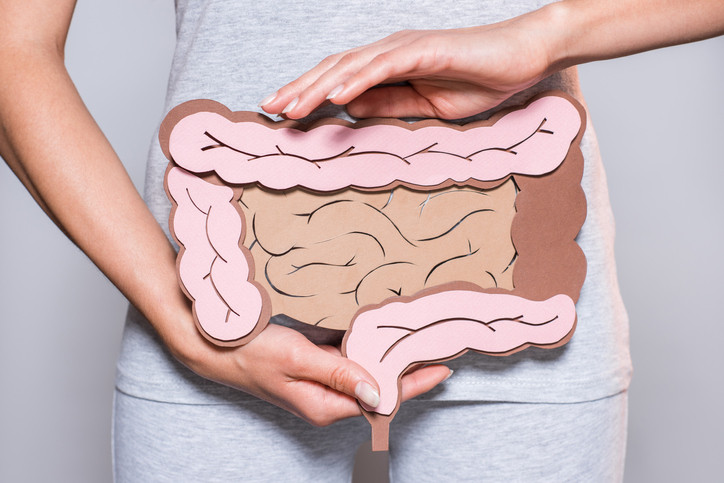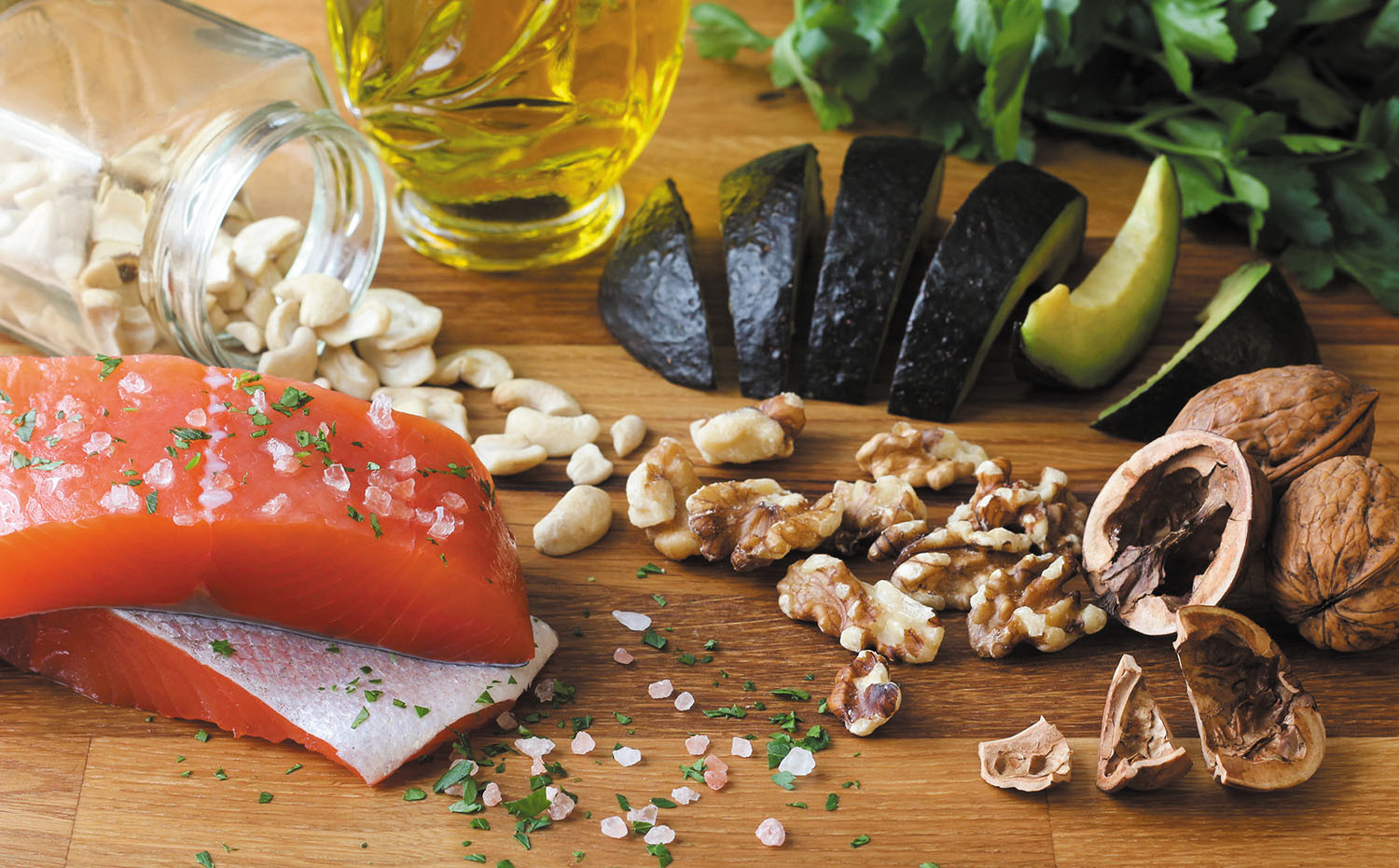
New thinking about plaque in arteries that feed the brain

Want to prevent shifting teeth? Maybe you need retainers

What you need to know about the new dietary guidelines

Food that’s healthier for people and planet can be cheaper, too

New evidence that polyphenol-rich foods help the heart

8 simple ways to reduce ultra-processed foods in your diet

How to curb your stress eating

How to spot Parkinson’s disease symptoms

Heart failure symptoms in women: How they’re different

GERD diet: Foods to avoid to reduce acid reflux
Nutrition Archive
Articles
Don't give up on grains
Whole grains contain fiber and nutrients that can help your health.
It's a low-carb world, and many people are pushing grains off their plate in an effort to control their waistline. But they may be doing their body a disservice. Whole grains have some unique properties that make them a valuable addition to the diet. Not only do they contain a host of nutrients, such as iron, B vitamins, copper, zinc, and magnesium, but studies have linked diets rich in whole grains to a lower risk of colon cancer, which is a growing health threat for many younger Americans.
"The main benefit of whole cereal grains, such as wheat, oats, and barley, is in the fiber," says Teresa Fung, adjunct professor in the Department of Nutrition at the Harvard T.H. Chan School of Public Health. "Cereal fiber is different from vegetable fiber or bean fiber."
Is your lunch lacking?
Research we're watching
If the contents of your lunch bag are looking less than wholesome, you're not alone. A survey sponsored by the American Heart Association found that more than half of Americans who eat lunch at work reported that their midday meal often falls short when it comes to good nutrition. In addition, 91% of those surveyed said they would be interested in making healthier lunch choices. So, what's making people choose less healthful lunch options? Top reasons included the convenience of unhealthy foods (cited by 60% of respondents), taste (54%), and a lack of healthy food options (cited by 43%). If you're looking to improve your own lunch quality, the American Heart Association offers some tips on its website at www.heart.org/healthyforlife.
Image: portishead1/Getty Images
Feeling gassy — is it ever a cause for concern?
Intestinal gas can be embarrassing, but is a normal part of digestion. Only rarely is excess gas cause for concern. Which foods you eat –– and how you digest them –– can make a difference.
Avoiding nuts and seeds for better gut health? You shouldn’t
Nuts and seeds are rich in fiber, which is important for gut health and keeping you regular. And, contrary to a common concern, no evidence links eating nuts and seeds to a painful gut infection called diverticulitis.
Harvard researchers: Red meat consumption tied to early death
News briefs
We already know that a diet rich in red meat is linked to many health problems, such as heart disease, type 2 diabetes, and colorectal cancer. Now a Harvard-led study published online June 12, 2019, by BMJ suggests that boosting your red meat intake increases your risk for early death. Scientists analyzed questionnaire answers about health and diet provided by more than 81,000 healthy men and women between 1986 and 2010. In particular, researchers looked at whether changes in red meat consumption during an eight-year period of the study affected the risk of death eight years later. The findings: An increase of just half a serving of processed red meat per day was associated with a 13% higher risk for dying young from any cause; an additional half-serving of unprocessed red meat increased the risk by 9%. On the flip side, decreasing total red meat consumption and increasing the consumption of nuts, fish, poultry without skin, dairy, eggs, whole grains, or vegetables was tied to a lower risk of death. The takeaway: Try to curb your appetite for red and processed meats like bacon, salami, and hot dogs. Eat more poultry, fish, or plant-based proteins (like beans, lentils, nuts, and seeds), along with the other components of a healthy diet.
Image: © Pavlo_K/Getty Images
Can these three steps save 100 million lives?
News briefs
A study published online June 10, 2019, by Circulation suggests that scaling up three healthy lifestyle changes could increase the life spans of almost 100 million people around the world. Researchers — led by a team from the Harvard T.H. Chan School of Public Health — evaluated global data on death rates, blood pressure levels, the use of blood pressure medications, sodium and trans fat intake, country, age, and gender. They estimated that a worldwide push to lower blood pressure, reduce salt intake by 30%, and eliminate the consumption of trans fat could delay more than 94 million deaths from cardiovascular disease in the next 25 years. More than half of those deaths would be among adults ages 70 or older, and more than half of all deaths would be among men. Regions that would see the most benefit are outside the United States — in East Asia, South Asia, the Pacific, and parts of Africa. But we can all benefit from the three lifestyle changes. Trans fat has already been banned in foods in the United States. But if your blood pressure isn't under control, it's time to talk to your doctor about treatment and to reduce sodium intake to well under 2 grams per day.
Image: © CatLane/Getty Images
The best beverages for your heart
Sweet drinks go down easy, but they may be hard on your heart. Aside from plain water, the healthiest choices are unsweetened tea, coffee, and flavored waters.
When you want to quench your thirst with something a little more exciting than plain old water, there are a dizzying array of choices these days. However, many of the beverages in supermarkets and convenience store aisles are loaded with added sugar. Even many of those that sound healthy (such as 100% fruit juice and vitamin-enhanced water) contain as much sugar as regular sodas.
Yes, the sugar in fruit juice is naturally occurring, as opposed to the processed sugar (usually high-fructose corn syrup) found in many carbonated and noncarbonated drinks such as sodas, vitamin water, and the like. But people should still be mindful about consuming too much fruit juice, says Vasanti Malik, a nutrition researcher at the Harvard T.H. Chan School of Public Health.
Legume of the month: Soybeans
Unlike many other common bean varieties, soybeans don't usually show up in canned or dried forms on super-market shelves. But other versions of this versatile legume can be found in many sections of well-stocked stores.
In the freezer section, for example, you can find packaged green soybeans, usually still in their pods (pictured above). Called edamame — a Japanese word meaning "stem beans" — they're commonly served as an appetizer in Asian restaurants. Squeeze the pods to pop out the bright green beans, which are good source of fiber and several vitamins, most notably B9 (folate) and K. Soybeans are a complete protein, meaning they contain all nine essential amino acids.
Ultra-processed foods linked to poor heart health
Research we're watching
Eating ultra-processed foods — such as packaged snacks, sugary cereals and drinks, chicken nuggets, and instant soup — may leave people more prone to heart disease and an early death, two new studies suggest. Both were published May 29 in The BMJ.
One study followed more than 105,000 adults for just over five years. Researchers found that for every 10% increase in the amount of ultra-processed foods people ate, their risk of a heart attack, stroke, or other serious cardiovascular event was 12% higher. The other study tracked nearly 20,000 people over an average of 10 years. People who ate more than four servings of ultra-processed foods daily had a 62% higher risk of dying from all causes compared with those who ate only two servings per day.
How to adopt a Mediterranean diet
This approach to eating has numerous health benefits. What's the best way to follow it?
For years, the Mediterranean diet has been touted for its heart- and cancer-fighting abilities, and countless studies have backed up its reputation as one of the world's healthiest eating patterns.
So what is the best way to begin eating the Mediterranean way? Approach it as a lifestyle and not a structured, rules-oriented diet, suggests Dr. Qi Sun, associate professor in the Department of Nutrition at Harvard's T.H. Chan School of Public Health.

New thinking about plaque in arteries that feed the brain

Want to prevent shifting teeth? Maybe you need retainers

What you need to know about the new dietary guidelines

Food that’s healthier for people and planet can be cheaper, too

New evidence that polyphenol-rich foods help the heart

8 simple ways to reduce ultra-processed foods in your diet

How to curb your stress eating

How to spot Parkinson’s disease symptoms

Heart failure symptoms in women: How they’re different

GERD diet: Foods to avoid to reduce acid reflux
Free Healthbeat Signup
Get the latest in health news delivered to your inbox!
Sign Up











